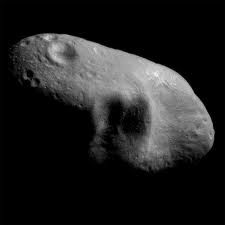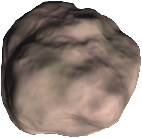Difference between revisions of "Moon/ko"
(Redirected page to Category:Moons/ko) |
(작업중ㅇㅇㅇㅇㅇㅇㅇㅇㅇㅇㅇㅇㅇㅇㅇㅇㅇㅇㅇㅇㅇㅇㅇㅇㅇㅇ) |
||
| Line 1: | Line 1: | ||
| − | + | [[File:TinyMun.png|thumb|[[Mun]], the nearest moon to [[Kerbin]] and largest in the Kerbin system]] | |
| + | [[File:TinyGilly.png|thumb|[[Eve]]'s moon [[Gilly]] is the smallest, lightest, bumpiest and most eccentric moon]] | ||
| + | A '''위성''' 또는 '''천연 위성'''은 항성이 아닌 다른 천체를 공전하는 [[천체]]입니다. 현실에서는 다양한 천체가 위성을 갖지만 커발 스페이스 프로그램에서는 다섯 개의 [[행성]]만이 위성을 갖습니다. It is possible to add additional moons using dynamically generated [[asteroid]]s. | ||
| + | |||
| + | == 불규칙성 == | ||
| + | 위성은 공전 궤도에 따라 [[w:regular moon|규칙 위성]]과 [[w:irregular moon|불규칙 위성]]으로 나눌 수 있습니다. 대부분의 위성들은 낮은 이심률과 경사도를 갖고 있기때문에 규칙위성으로 분류됩니다. The moons [[Gilly]], [[Bop]] and [[Pol]] are the most irregular predefined moons. It should be noted that this differentiation is made by observations and are not officially documented in the game. There is no difference between them and other celestial bodies in terms of game mechanics. | ||
| + | |||
| + | There are various properties to differentiate between both types and the properties are opposing. For example regular moons have a low eccentricity while irregular moons have usually high eccentricities. Apart from the eccentricity irregular moons have also high inclinations, a low mass ratio to the body they orbit and are uneven. Generally irregular moons have also a lower mass than their regular counterparts which results in a lower surface gravity, although they are smaller. Sometimes there is a ratio between the [[sphere of influence]] and [[semi-major axis]] mentioned, which is the same as the mass ratio raised to the power of ⅖. | ||
| + | |||
| + | [[File:Index.jpg|thumbnail|The real life near-Earth asteroid [[w:433 Eros|Eros]]]] | ||
| + | The moons Gilly, Bop and Pol are considered irregular moons, because most of the defining properties are distinctly different than those from the regular moons. Only the irregular moons, except for [[Ike]] which is considered a regular moon, no eccentricity but even Ike's eccentricity is small compared to the irregular moons. | ||
| + | |||
| + | Because it is believed in the real-world science that most irregular moons are captured asteroids, they are sometimes called captured asteroids. But they are different with dynamically generated asteroids which were captured, because dynamically generated asteroids are even smaller than predefined ones.<ref>[[article:265|“Asteroid Redirect Mission - The FAQ”]] by Rowsdower released on March 14<sup>th</sup></ref> They also don't have a gravitational field, which makes them different from moons in terms of celestial mechanics. | ||
| + | |||
| + | == Moon comparison == | ||
| + | The following table shows those properties for all moons, with irregular moons highlighted. For the mass ratio, eccentricity and unevenness all irregular moons are grouping together and the difference to the closest regular moon is good observable. Only the regular moon Ike has a higher inclination. Another regular moon Minmus has a smaller radius, lower mass and surface gravity than Bop. The unevenness is the quotient of the highest point divided by the radius. An unevenness of 0.01 means, that the highest mountain is as high as 1% of the complete radius (as the highest point data isn't complete those unevenness values denoted as n/a). | ||
| + | |||
| + | {| class="wikitable sortable" | ||
| + | |+ Comparisons between the moons | ||
| + | |- | ||
| + | ! Moon | ||
| + | ! Radius (km) | ||
| + | ! Mass (kg) | ||
| + | ! Mass ratio | ||
| + | ! Eccentricity | ||
| + | ! Inclination (°) | ||
| + | ! Unevenness | ||
| + | ! Surface gravity (m/s²) | ||
| + | {{:Moon/Row|Gilly}} | ||
| + | {{:Moon/Row|Mun}} | ||
| + | {{:Moon/Row|Minmus}} | ||
| + | {{:Moon/Row|Ike}} | ||
| + | {{:Moon/Row|Laythe}} | ||
| + | {{:Moon/Row|Vall}} | ||
| + | {{:Moon/Row|Tylo}} | ||
| + | {{:Moon/Row|Bop}} | ||
| + | {{:Moon/Row|Pol}} | ||
| + | |} | ||
| + | |||
| + | == See also == | ||
| + | * [[:Category:Moons]], containing all articles about the moons | ||
| + | * {{Wikipedia|Natural satellite}} | ||
| + | * {{Wikipedia|Asteroid capture}} | ||
| + | |||
| + | == References == | ||
| + | <references /> | ||
| + | |||
| + | [[Category:Moons| ]] | ||
Revision as of 09:21, 19 January 2016
A 위성 또는 천연 위성은 항성이 아닌 다른 천체를 공전하는 천체입니다. 현실에서는 다양한 천체가 위성을 갖지만 커발 스페이스 프로그램에서는 다섯 개의 행성만이 위성을 갖습니다. It is possible to add additional moons using dynamically generated asteroids.
Contents
불규칙성
위성은 공전 궤도에 따라 규칙 위성과 불규칙 위성으로 나눌 수 있습니다. 대부분의 위성들은 낮은 이심률과 경사도를 갖고 있기때문에 규칙위성으로 분류됩니다. The moons Gilly, Bop and Pol are the most irregular predefined moons. It should be noted that this differentiation is made by observations and are not officially documented in the game. There is no difference between them and other celestial bodies in terms of game mechanics.
There are various properties to differentiate between both types and the properties are opposing. For example regular moons have a low eccentricity while irregular moons have usually high eccentricities. Apart from the eccentricity irregular moons have also high inclinations, a low mass ratio to the body they orbit and are uneven. Generally irregular moons have also a lower mass than their regular counterparts which results in a lower surface gravity, although they are smaller. Sometimes there is a ratio between the sphere of influence and semi-major axis mentioned, which is the same as the mass ratio raised to the power of ⅖.

The moons Gilly, Bop and Pol are considered irregular moons, because most of the defining properties are distinctly different than those from the regular moons. Only the irregular moons, except for Ike which is considered a regular moon, no eccentricity but even Ike's eccentricity is small compared to the irregular moons.
Because it is believed in the real-world science that most irregular moons are captured asteroids, they are sometimes called captured asteroids. But they are different with dynamically generated asteroids which were captured, because dynamically generated asteroids are even smaller than predefined ones.[1] They also don't have a gravitational field, which makes them different from moons in terms of celestial mechanics.
Moon comparison
The following table shows those properties for all moons, with irregular moons highlighted. For the mass ratio, eccentricity and unevenness all irregular moons are grouping together and the difference to the closest regular moon is good observable. Only the regular moon Ike has a higher inclination. Another regular moon Minmus has a smaller radius, lower mass and surface gravity than Bop. The unevenness is the quotient of the highest point divided by the radius. An unevenness of 0.01 means, that the highest mountain is as high as 1% of the complete radius (as the highest point data isn't complete those unevenness values denoted as n/a).
| Moon | Radius (km) | Mass (kg) | Mass ratio | Eccentricity | Inclination (°) | Unevenness | Surface gravity (m/s²) |
|---|---|---|---|---|---|---|---|
| |
13.00 | 1.2420×1017 | 0.00000100 | 0.550 | 12.00 | 0.4923 | 0.05 |
| |
200.00 | 9.7599×1020 | 0.01844440 | 0.000 | 0.00 | 0.0353 | 1.63 |
| |
60.00 | 2.6458×1019 | 0.00050000 | 0.000 | 6.00 | 0.0954 | 0.49 |
| |
130.00 | 2.7822×1020 | 0.06161460 | 0.030 | 0.20 | n/a | 1.10 |
| |
500.00 | 2.9397×1022 | 0.00694440 | 0.000 | 0.00 | n/a | 7.85 |
| |
300.00 | 3.1088×1021 | 0.00073440 | 0.000 | 0.00 | 0.0266 | 2.31 |
| |
600.00 | 4.2332×1022 | 0.01000000 | 0.000 | 0.03 | n/a | 7.85 |
| |
65.00 | 3.7261×1019 | 0.00000880 | 0.235 | 15.00 | 0.3347 | 0.59 |
| |
44.00 | 1.0814×1019 | 0.00000260 | 0.171 | 4.25 | 0.1271 | 0.37 |
See also
- Category:Moons, containing all articles about the moons
- Natural satellite on Wikipedia
- Asteroid capture on Wikipedia
References
- ↑ “Asteroid Redirect Mission - The FAQ” by Rowsdower released on March 14th

